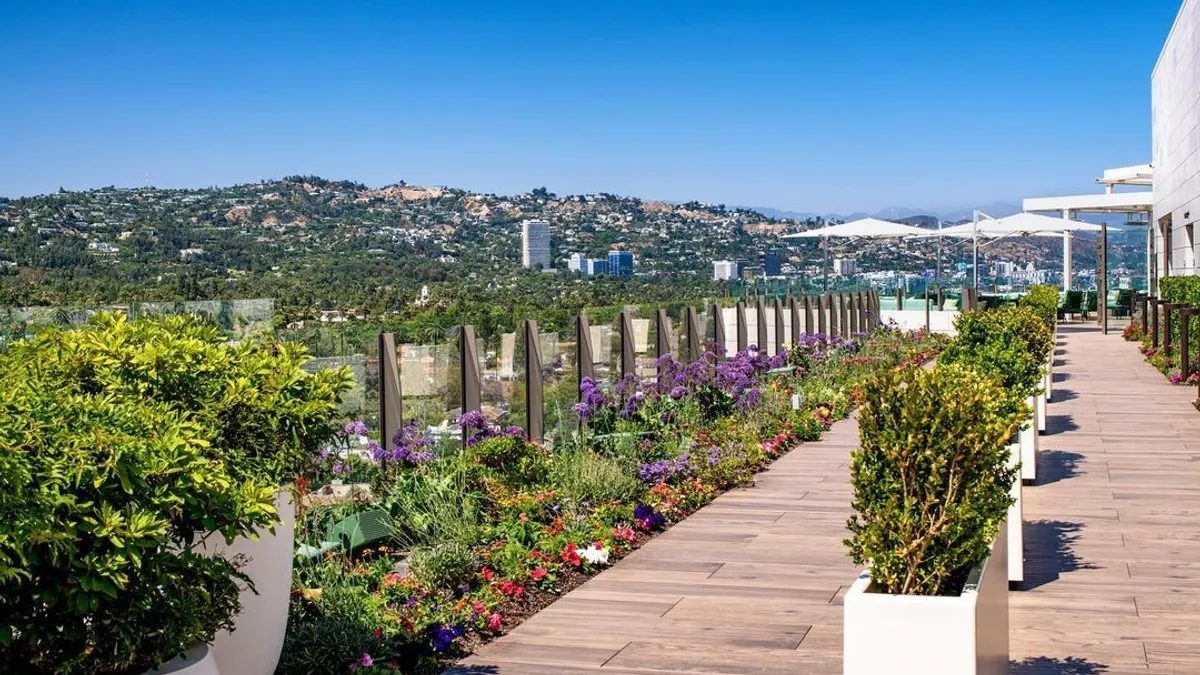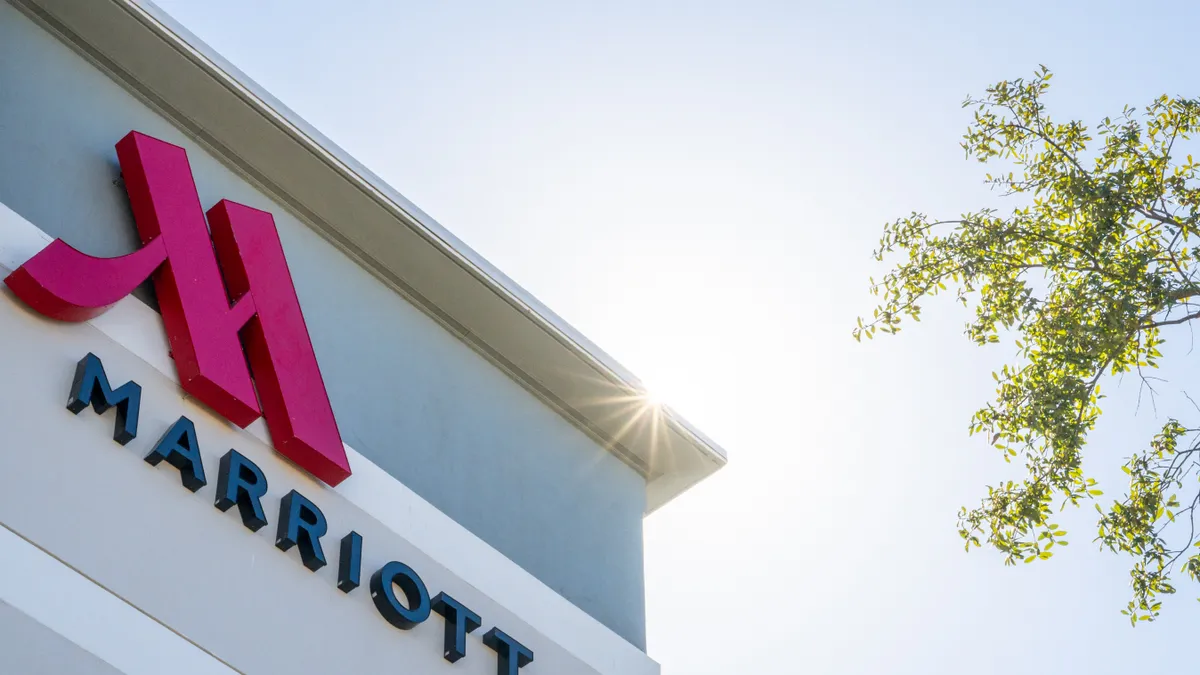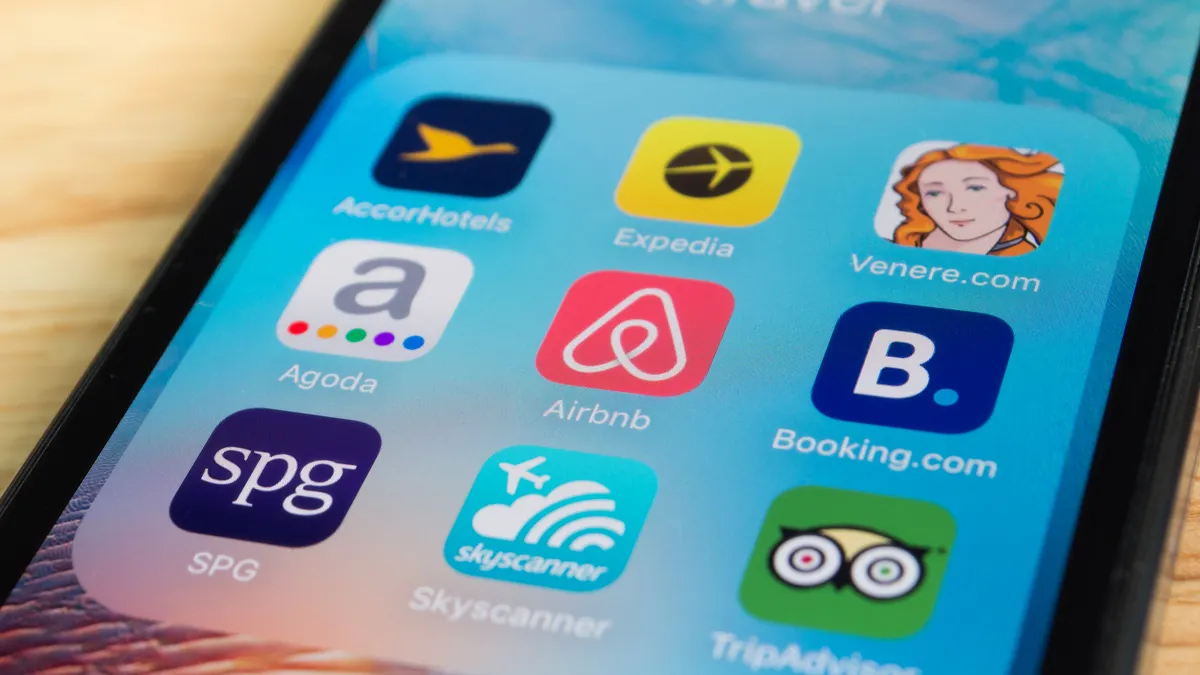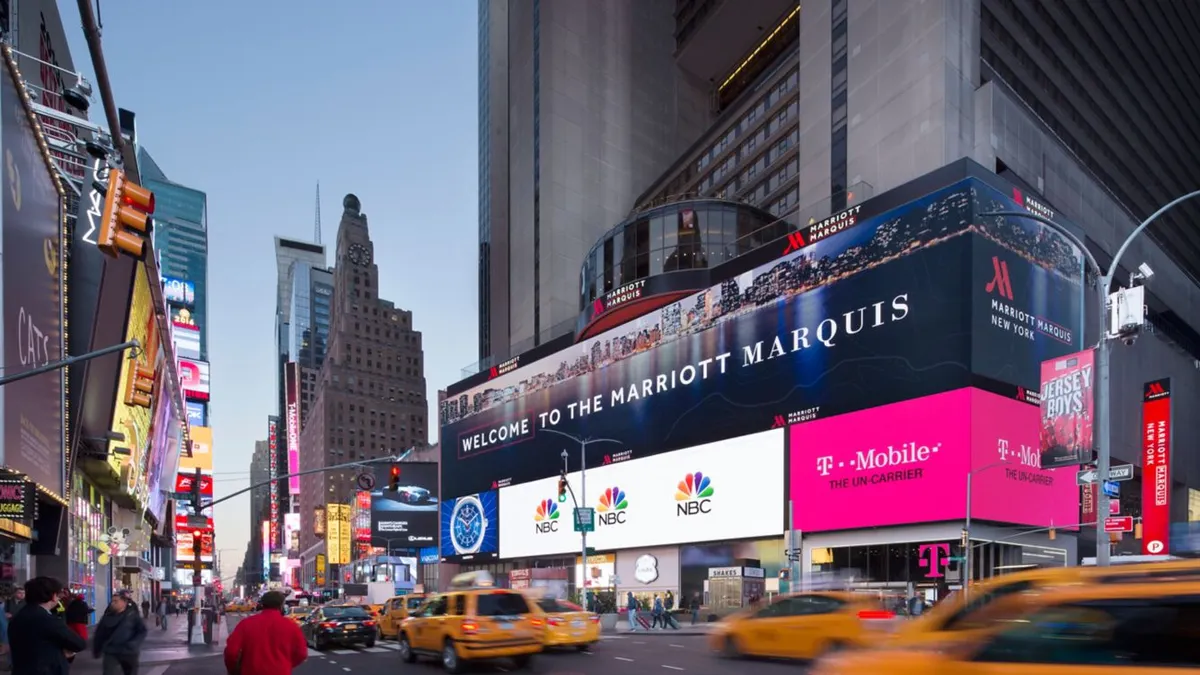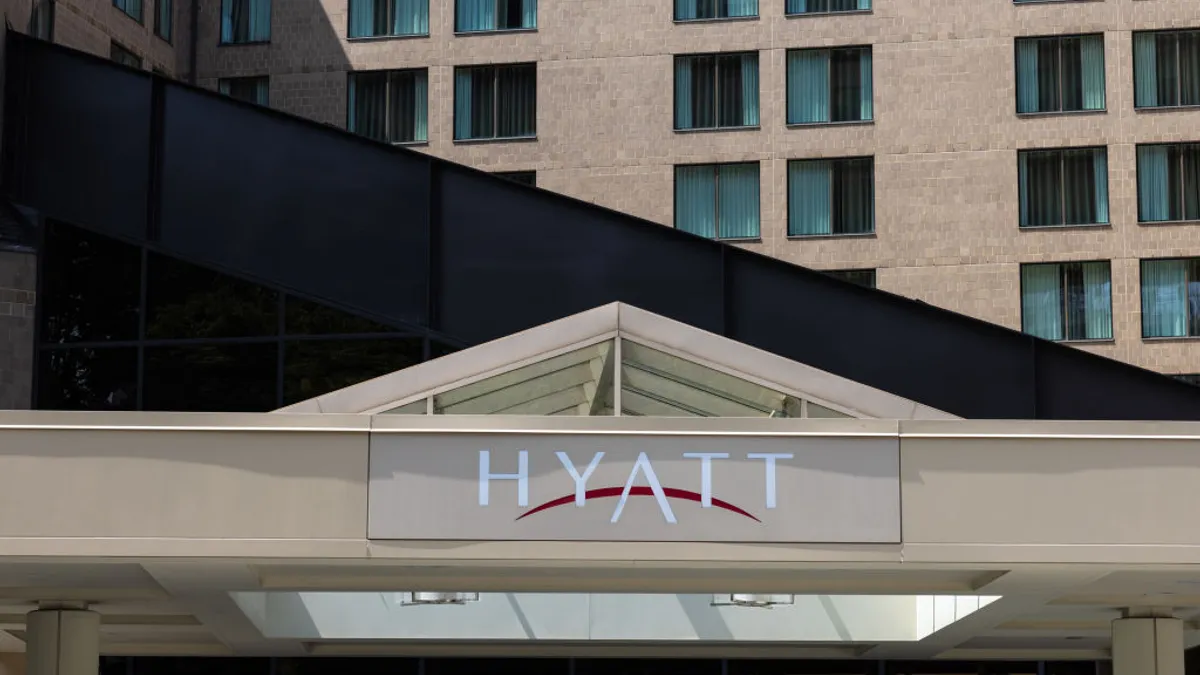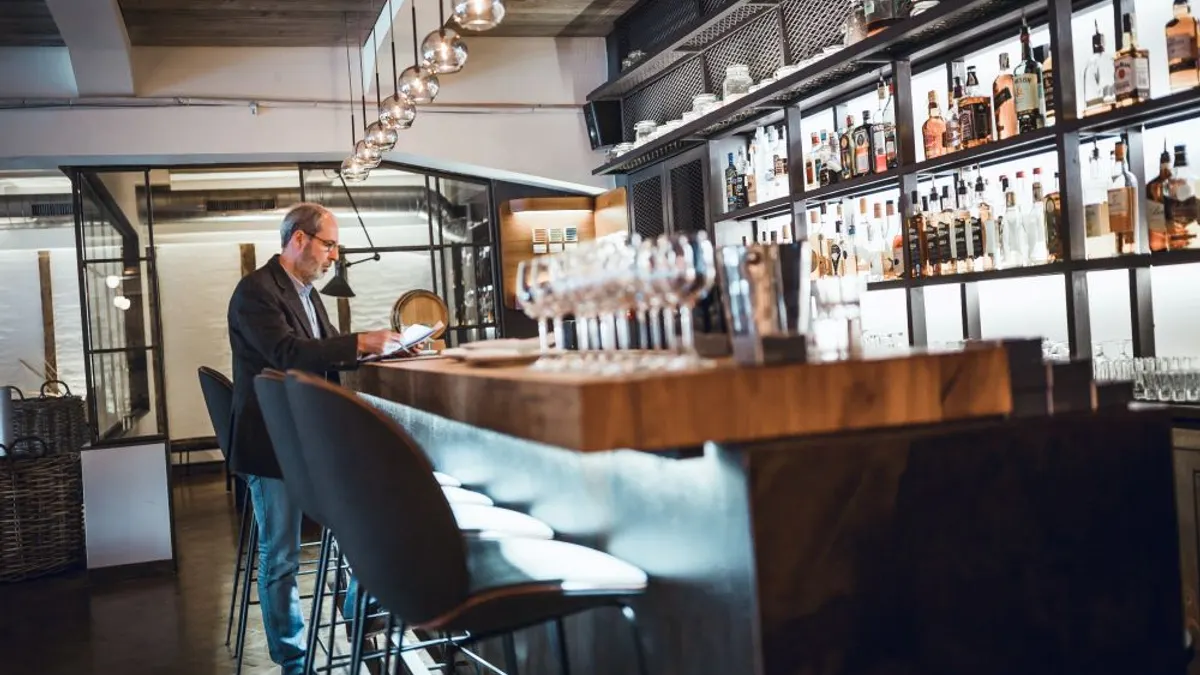Hotel Tech-in is our regular feature that takes a closer look at emerging technology in the hospitality industry.
Recycled plastic? Great. Recycled water? That’s a different story.
For one luxury hotel in California, though, reusing water isn’t a taboo topic. With an on-site water recycling system from Epic Cleantec, Waldorf Astoria Beverly Hills recycles and reuses its own wastewater for irrigating landscaping and vegetation at the hotel’s rooftop bar.
The process is fast, the technology is sleek and the action saves significant resources and money, according to Aaron Tartakovsky, CEO and co-founder of Epic Cleantec.
While society has been “conditioned our entire lives to think that you use water once and then you get rid of it,” the Epic Cleantec system is normalizing what Tartakovsky says is a completely safe practice. The founder spoke to Hotel Dive about how his water recycling system works, what its impact is and how it could reshape hotel sustainability nationwide.
The process
Waldorf Astoria Beverly Hills is one of the first hospitality projects that Epic Cleantec is working on, Tartakovsky said, though a growing interest in the tech suggests it won’t be the last.
At the hotel, the water recycling system takes up just a few hundred square feet of space in the basement — the typical placement of the system in commercial buildings. Beyond hospitality projects, Epic Cleantec is in apartment buildings, offices and mixed-use developments.
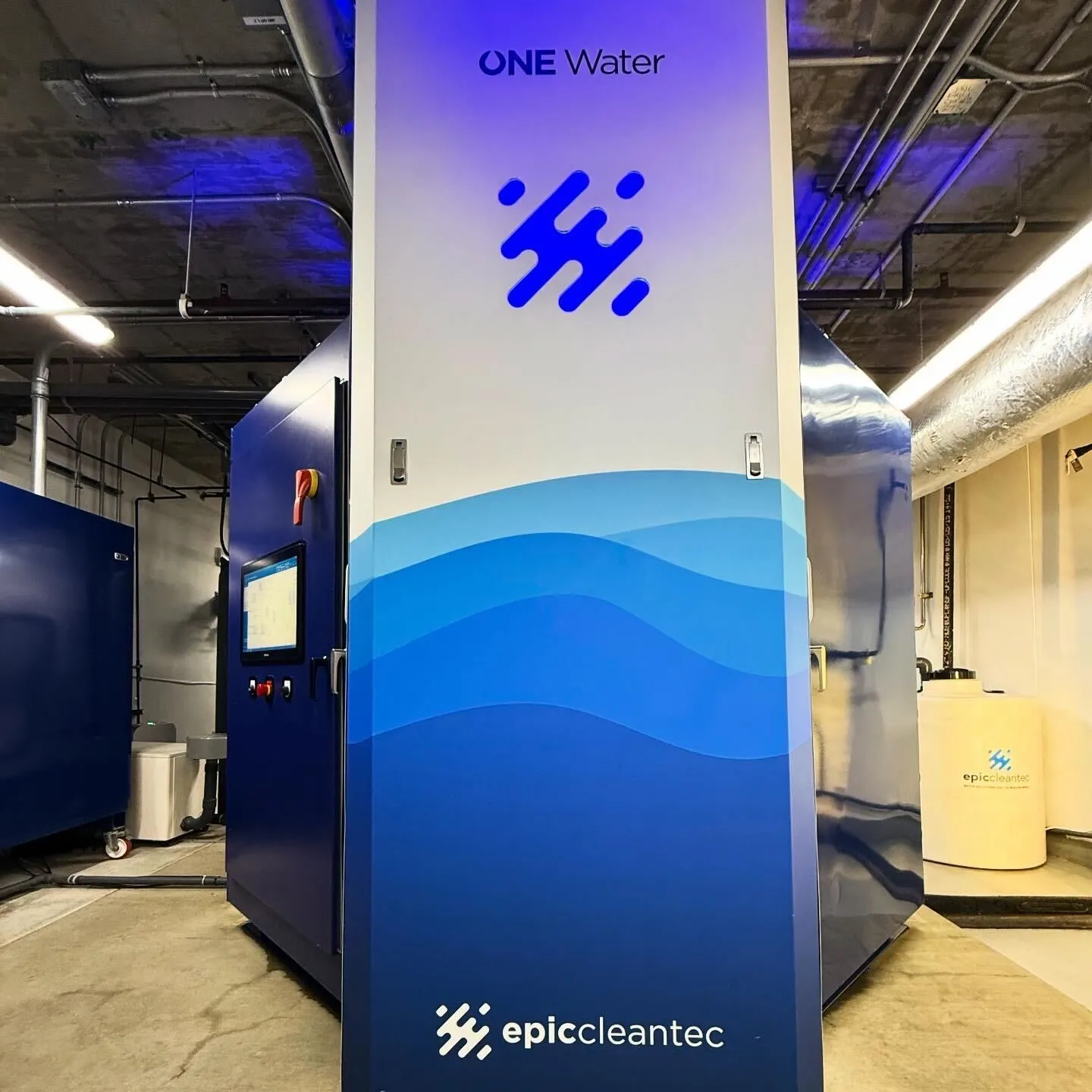
The system was designed to look like a sleek appliance, in an effort to destigmatize the water recycling process, according to Tartakovsky.
“Typically, when you walk into a basement treatment room, you see a bunch of industrial equipment and pipes and parts,” he said. “We tried to create the Apple store of water reuse systems, where you walk in [and it’s] just beautiful.”
The system is not only aesthetically pleasing but practical. Water from the hotel’s showers and laundry collects in the system’s tank and is filtered through an advanced treatment and purification process that uses living organisms, similar to fermentation, Tartakovsky said. The water is disinfected and purified to a drinking-level quality, he noted, though the hotel is not using it for that purpose — yet.
The Waldorf Astoria uses the treated water exclusively for landscape irrigation on its rooftop gardens, but there is potential to use the recycled water for everything from flushing toilets to doing laundry. And the system can recycle water over and over again, Tartakovsky said.
Essentially, a hotel could run a load of laundry, recycle the water from that load with the Epic Cleantec system, then use the purified water to run another load and continue that process multiple times over. This not only saves water, but also saves money, Tartakovsky noted.
At the Waldorf Astoria, the system can treat 1,200 gallons of water a day, he said. The hotel’s website says the technology has resulted in 438,000 gallons of recycled water annually.
The impact
With those capabilities, the hotel is setting a new standard for sustainability in the hospitality industry, according to Tartakovsky.
“In a place like California, where droughts are becoming more frequent, more prolonged and more extreme, what we’re learning is that the status quo of how we manage our water resources is no longer sustainable,” Tartakovsky said. “For a property like the Waldorf Astoria Beverly Hills, which is obviously a very prominent property, to put this front and center is a big statement and sends a message to the rest of the hospitality industry.”
The Waldorf Astoria’s use of the system “not only addresses regional water scarcity” but demonstrates the brand’s “commitment to environmental stewardship,” according to the hotel’s website. Waldorf Astoria Beverly Hills also uses Nostromo’s IceBrick technology to reduce greenhouse gas emissions.
For hotels, practicing sustainability is especially important at a time when travelers “want to spend their money and stay in places that agree with their values,” Tartakovsky said.
“When you live in a place like California, and you're driving around and you see signs talking about the drought and the need to conserve water to help our farmers, I think people feel a sense of hopelessness,” he added. “When you have a property that is very openly and proudly talking about this water recycling system, people feel really good about spending their time and money [there].”
Sustainability goes beyond “just being nice to do,” he added, saying it's “actually a pretty compelling business case for the hospitality industry.”
With the Epic Cleantec system, hotels spanning chain scales can adopt sustainable measures. The system is “not just for luxury,” Tartakovsky said, adding that its overall affordability depends on “the water and sewer costs in any given community.”
Epic Cleantec has more hospitality projects down the pike, though Tartakovsky declined to share more. As for when hotel guests will be ready to drink recycled water? He said the company has “some projects in the works that are actually going to be helping to make that a reality in pretty short order.”



